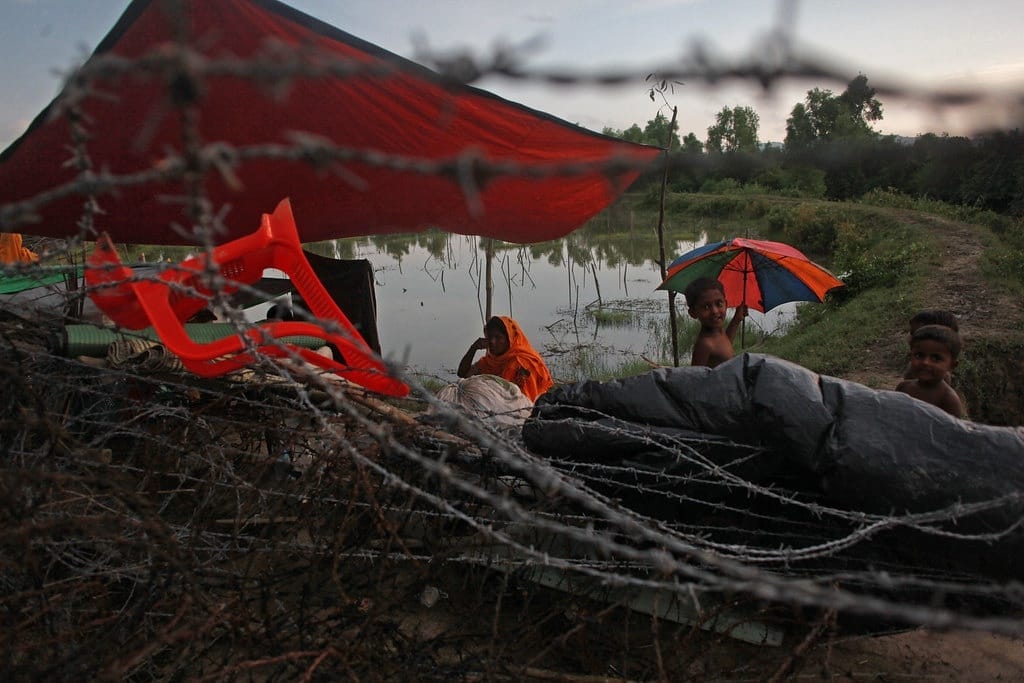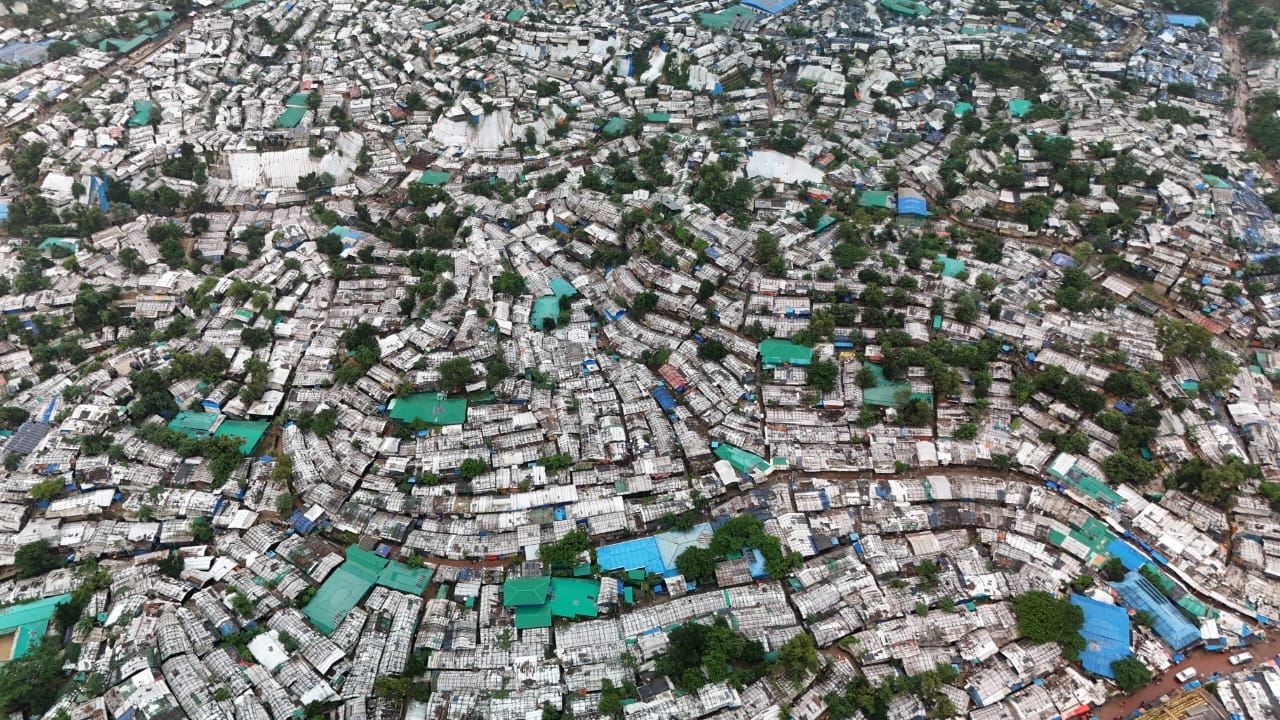The Rohingya crisis is in Bangladesh
Cloaked under performative pronouncements appealing to the world’s conscience, Bangladesh’s leaders have refused to fulfil the state’s obligations towards refugees it harbours.

“The Rohingya crisis started in Myanmar, hence its solution must be in Myanmar.”
“The Rohingya crisis emanated from Myanmar. And the solution also lies in Myanmar.”
The first quotation is from Sheikh Hasina’s address to the UN General Assembly in 2018. The second is a quotation from Muhammad Yunus’ speech at the High-level Conference on the Rohingya Situation on August 25th 2025. Perhaps the risk of being caught plagiarising a former prime minister whom the chief adviser has taken to calling “fascist” – a claim he stated as fact within the first half dozen sentences of the aforesaid speech – is the reason behind his government’s decision to make reporting on Hasina’s pronouncements illegal.
Hasina fashioned herself as the Mother of Humanity – a claim repeated ad nauseam as fact by her courtiers – based on her handling of the Rohingya crisis. Giving refuge to victims of a genocide in Myanmar provided her with much-needed credibility as a defender of human rights. It was a veneer thickly applied to her Awami League government as it committed human rights violations rampantly and on a mass scale. That is why Hasina was never shy to call for the international community’s support in finding a road to peace in Myanmar, and in safely repatriating the Rohingyas to their land, while asking for aid and assistance for the Rohingya refugees in Bangladesh in the interim.
Yunus’ speech, delivered on the eighth anniversary of the forced displacement and genocide of Rohingyas, was replete with these very same talking points. The thrust of it was what Hasina had made fact through repetition, about Rohingyas in relation to Bangladesh: This poor country, burdened by its own problems and population, can only beg the world to help it with refugees towards whom it would remain suspicious, discriminatory and exclusionary. Among feel-good bromides about solidarity and a nod to performative fasting, absent was any substantive mention of fulfilling Bangladesh’s duties towards the refugees.
Eight years on, there are two crises related to the Rohingyas. The first is the genocide conducted by the state of Myanmar. The second is the state of refugees. Only a civilian government can provide the leadership necessary to find solutions to both. Yet, from Hasina to Yunus, Bangladeshi leaders keep reminding everyone of the first, using it to abdicate responsibility for the second. Despite the UN High Commissioner for Refugees’ recommendations, Bangladesh has neither ratified the Refugee Convention 1951 nor developed domestic legislation vis-a-vis refugees. Although the Supreme Court has recognised the customary international law principle of non-refoulement, that meagre step is insufficient in ensuring that refugees are able to exercise fundamental human rights. When the state so flagrantly refuses to assume its responsibilities to those within its borders, thereby cultivating the ground for opportunists and bad actors to fill the vacuum, victims are further victimised by having education, healthcare, livelihood and any semblance of a normal life withheld from them.

Caught between the geopolitical machinations of a superpower in China, who has no interest in protecting the Rohingyas, and a regional hegemon in India, who, like Bangladesh, Pakistan, Sri Lanka and nearly all of ASEAN, is not a signatory to the Convention, and whose ruling BJP refers to Bangladeshis as “termites” and “infiltrators”, the crisis of the state of Rohingya refugees in Bangladesh shows no signs of being addressed.
The interim government has shown itself to be as reluctant to put it on the agenda as its predecessor, following the Awami League precedent of non-committal references that provide humanitarian soundbites instead. In his speech, Yunus mentioned that it would be “a historic blunder” if every Rohingya in Rakhine was killed. What about the lives of every Rohingya in Bangladesh?●